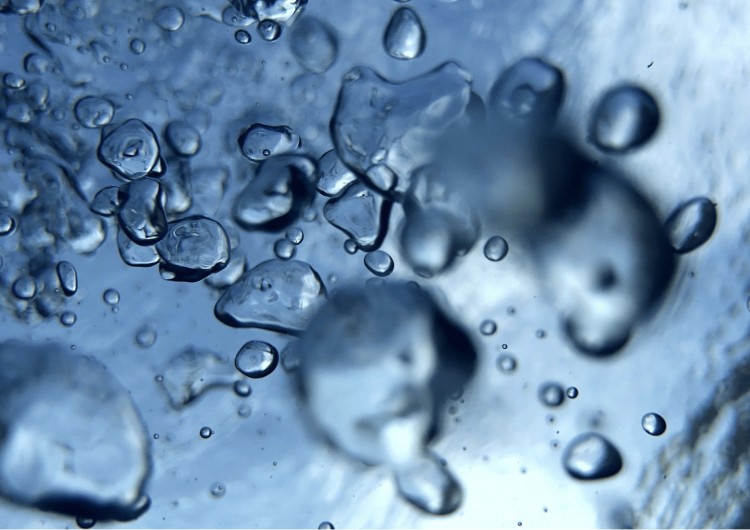The importance of biodegradability in beauty and body care products

At a time when our planet is facing an unprecedented environmental crisis, the importance of biodegradability in beauty and body care products is increasingly recognized. This article addresses this issue, exploring the potential harmfulness of certain synthetic ingredients commonly used in these products, which are not biodegradable and can cause permanent damage to our precious ecosystems. It also looks at the importance of opting for biodegradable alternatives, which are both skin-friendly and environmentally friendly. And we hammer home the crucial role we, as consumers, have to play in this context: our power to choose more sustainable and responsible products can make a major difference.
Biodegradability is a term used to describe the ability of a product or ingredient to break down naturally into elements that are not harmful to the environment. Biodegradable ingredients can be broken down by micro-organisms into simpler elements such as carbon dioxide, water or mineral salts. This means they do not accumulate in the environment, and have no harmful effects on the surrounding flora and fauna.
In today's global environmental crisis, the importance of biodegradability in beauty products cannot be underestimated, and the use of biodegradable ingredients in body care products is crucial. It is imperative that we take into account the impact of our consumer choices on the environment, and try to limit the damage on a personal scale.
Beauty and personal care products such as moisturizers, face and body lotions, soaps, shampoos and conditioners, sunscreens and fragrances often contain synthetic and artificial ingredients that are harmful to the environment. These ingredients can cause permanent damage to natural ecosystems, particularly rivers, lakes and oceans. Please note that not all synthetic or artificial ingredients are harmful. We have a whole article on this subject HERE.
Some of the most commonly used ingredients in cosmetics that are not biodegradable are plastic microbeads, silicones, parabens, mineral oils and sulfates.
Plastic microbeads are very small particles of plastic often found in body and face scrubs and cleansers. When used, these particles are released into the environment, where they accumulate in river, lake and ocean ecosystems, affecting aquatic fauna and flora and water quality. Yet there are many biodegradable alternatives to these plastic microbeads: sugar, salt, crushed nut shells of all kinds, the seeds of certain fruits, jojoba beads... the list goes on! These natural ingredients are just as effective at exfoliating skin and cleansing pores, but are totally biodegradable and harmless to the environment. They are, of course, more expensive.
Silicones are a class of ingredients commonly used in cosmetic products, notably in hair care and sometimes in body care. Silicones are synthetic polymers with a highly stable molecular structure, resistant to biological degradation processes, which are manufactured from silica, a natural compound found in sand and rocks. In other words, the micro-organisms and bacteria that break down organic matter in the environment are unable to degrade silicone polymers, as they do not possess the enzymes needed to break the chemical bonds that make up these polymers. This means that silicones can remain in the environment for years, even decades, without breaking down. To replace silicones, which are often used to give beauty products a silky-smooth texture, ingredients such as squalene, shea butter and argan oil can be used. These ingredients are natural and biodegradable, and are just as effective at softening and moisturizing the skin.
We have a whole article on parabens, mineral oils and sulfates HERE, which are also harmful to your skin and body. They can also be easily replaced.
Parabens, used as preservatives in many beauty products, can be replaced by gentler, natural preservatives. These alternatives are just as effective in preserving beauty products, but are gentler on the environment.
Mineral oils can be replaced by vegetable oils such as coconut oil, olive oil and jojoba oil. These vegetable oils are biodegradable and rich in nutrients, making them ideal for moisturizing and nourishing skin and hair.
Finally, sulfates, which are often used in cleaning products to create foam and clean, can be replaced by natural surfactants such as sodium coco-sulfate or lauryl glucoside. These natural surfactants are biodegradable and less irritating to the skin than sulfates.
Environmentally conscious cosmetics brands have begun to highlight the use of biodegradable ingredients in their products, although it should be noted that under current regulations, a brand is not allowed to highlight the fact that it excludes these ingredients from its formulas, as this is considered to discriminate against brands that use these ingredients. Is it? Yes...
The ball is therefore in the court of consumers, who can play an important role by choosing to support brands that use biodegradable ingredients, and by avoiding products that contain ingredients that are harmful to the environment.
As consumers, it's important to consider the environmental impact of our choices, including when it comes to beauty products. By choosing biodegradable ingredients, we can help preserve our environment and maintain the long-term health of our skin.





Comments
No comment at this time!
Leave your comment